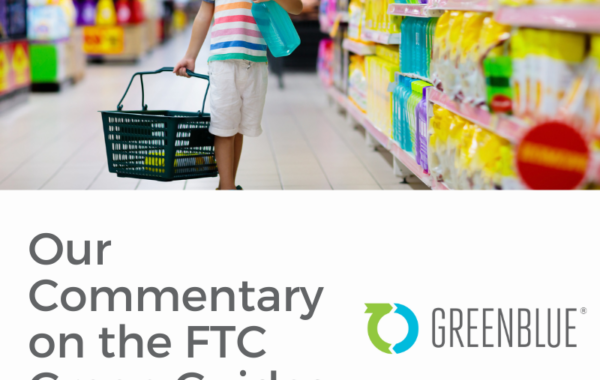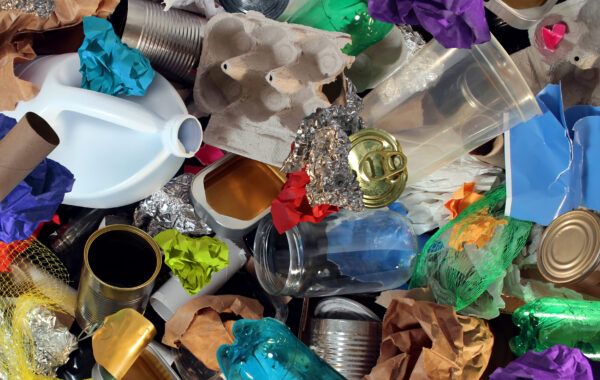August 18, 2020
Many identify policy as a tool for addressing environmental challenges. Policies use a variety of tactics to minimize or prevent environmental harm; some include incentives, while others lean towards penalties, limits, or bans. Bans are a preventative measure. Thus, in an environmental context they generally aim to prevent things like invasive species, toxins, or materials from entering the environment. In reality, what can bans actually accomplish?
To ban something means to prohibit or to legally prevent it. Most are familiar with bans on a federal level in the United States. However, more granularly, each individual state can, and does, enact their own bans. The waste industry is no stranger to bans. For years, many states have banned tires, motor oil, batteries, and hazardous chemicals from entering municipal solid waste landfills. More recently, the packaging industry has been affected by state bans. An increasing number of states have enacted bans on providing plastic bags, and some have banned expanded polystyrene (Styrofoam), or non-recyclable single-use plastic food serviceware.
These two worlds collide when landfill bans are enacted against recyclable packaging, which have been an increasingly popular policy tool to support recycling. However, over the years, they have remained a questionable policy tool to keep plastics out of landfills due to difficult enforcement measures and scattered, state-by-state approaches.
What exactly are landfill bans?
A landfill ban starts as a written clause, generally found within municipal solid waste statutes that prohibits certain materials or items from being disposed of in a landfill and necessitating alternative disposal or recycling options. While one might expect toxic or hazardous items to be banned from landfilling, a few states have gone the extra mile and banned common household recyclable items in an effort to reduce landfill waste and encourage recycling.
Frequent “blue bin” recyclables banned from landfills include aluminum cans, glass bottles, cardboard or paper, and certain plastics. For example, in North Carolina, their state statute reads, “No person shall knowingly dispose of the following solid wastes in landfills: Aluminum cans, recyclable rigid plastic containers, that have a neck smaller than the body of the container, and that accept a screw top, snap cap, or other closure”.
It is important to note the plastic container clause in North Carolina’s statute has very specific details about what type and shape of plastic containers fall under the ban. Essentially, the only plastic containers that fit the above description are plastic bottles and jugs, typically made from PET or HDPE. When examining landfill bans in a few states, including Massachusetts, Vermont, North Carolina, and Wisconsin it is apparent they all distinguish between plastic containers, either by shape or resin. The list below represents the plastics banned from disposal in those states:
VT – Plastics #1 and #2
MA – Single-resin narrow-necked plastic containers
WI – Plastics #1 and #2
NC – Rigid plastic containers that have a neck smaller than the body of the container, and that accept a screw top, snap cap, or other closure
For plastics, the clause phrasing differs by state, but overall the general principle is similar; all plastic types and formats are not treated equally and these landfill bans focus on the most widely recyclable plastic containers
While these landfill bans consistently include widely recyclable plastic containers, the issue of hard to recycle plastic items remains unaddressed by landfill bans. Are these bans effective if they only encompass the easiest to recycle plastics? What about containers shaped like tubs with no neck, plastics like polypropylene (#5), and films?
Like all bans, landfill bans for common recyclable materials are difficult to enforce. For example, many people sip alcohol before legal age or read books that are banned. The same applies to bans against littering or bans preventing the use of plastic bags. Landfill bans are no exception. Some statutes ask landfill operators to visually screen every load coming into the landfill for plastics bottles and aluminium cans, a difficult task for anyone, especially one whose revenue relies on loads of material.
It is obvious from the language of these landfill bans that not all plastics are treated equally – only the most valuable plastics are addressed – and proper execution of the ban is difficult to judge and enforce. Overall, landfill bans simultaneously have us questioning their ability to prevent plastics from entering landfills, while acknowledging the merit of the measures taken by some states to prevent filling landfills with recyclable material.
To increase the effectiveness of landfill bans, a few areas need improvement. The policies among states vary widely, so strong regional or federal policy could alleviate the inconsistencies and fortify the bans. Enforcement also needs improvement, as it currently relies on occasional inspections, education from fellow citizens, and general awareness of the law. States could amplify their efforts to engage all stakeholders in understanding and abiding by the law. While policing household waste is not an option, community efforts like garbage cart tagging, where residents are notified if their garbage container is filled with landfill-banned materials, could be a potential solution to the lack of enforcement. To conclude, landfill bans are a reasonable approach to mitigating the landfilling of recyclable materials, but like many policy tools before them, we are still learning how to achieve maximum benefit.





